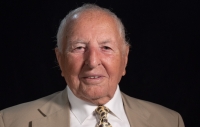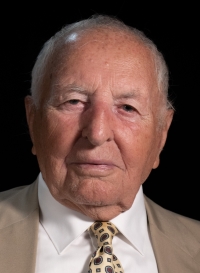The first impression of America? I died and woke up in paradise!

Download image
He was born on February 23, 1929 in Prague. After the war, he was a member of the National Socialist Party’s youth organization. In the autumn of 1948, he and his friend Jindřich Hoffmann decided to run away from the communist state. They illegally crossed the North Bohemian border and passed through the Soviet occupation zone of Germany. Then, with the help of smugglers, they crossed into the British zone in Helmstedt. They were sentenced by a British court to two weeks in prison for illegal border crossing, and they were also questioned by the US counterintelligence service CIC. After receiving political refugee status, they spent two years in a refugee camp run by the International Refugee Organization in Hanover. In July 1951, Vladimir Zikan went to the United States, first to a farm in Wisconsin, then to New York. There he lived in the Czech Quarter in Manhattan, but in the summer of 1952 he joined the US Army. After four months of training, he was sent to the Korean War, where he fought until its end in July 1953. In 1954, he returned to the United States as an American citizen. He made a living by playing football, among other things, then he settled at the electronic company Westinghouse in Baltimore. He graduated from college in the USA, got married and raised two sons. During his visits to the Czechoslovak Socialist Republic in the 1970s, the State Security tried to get him to cooperate, but failed.

